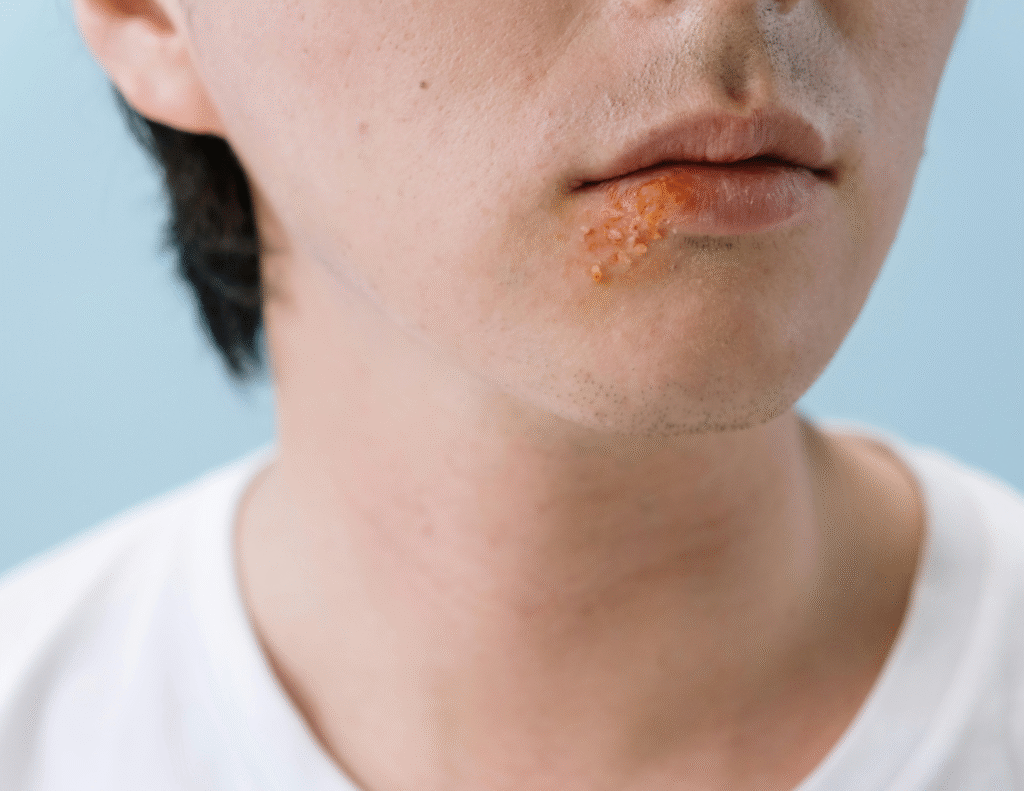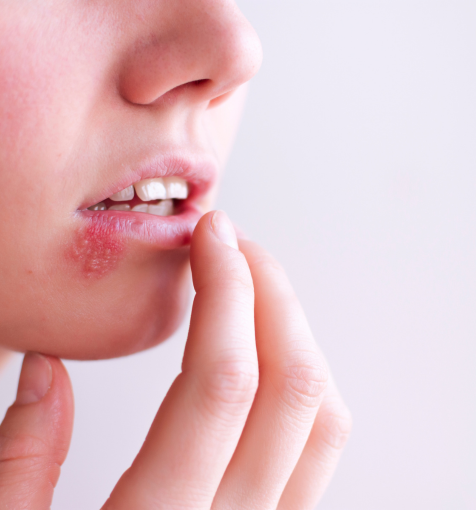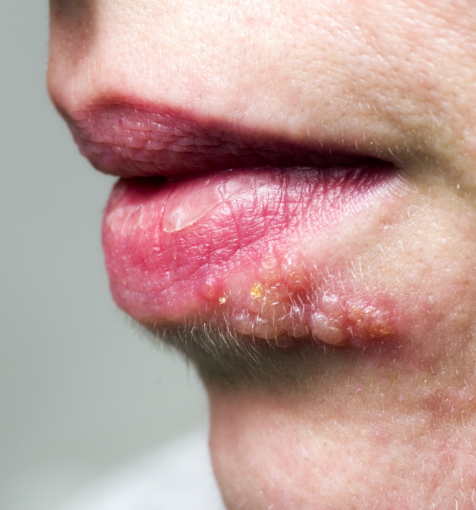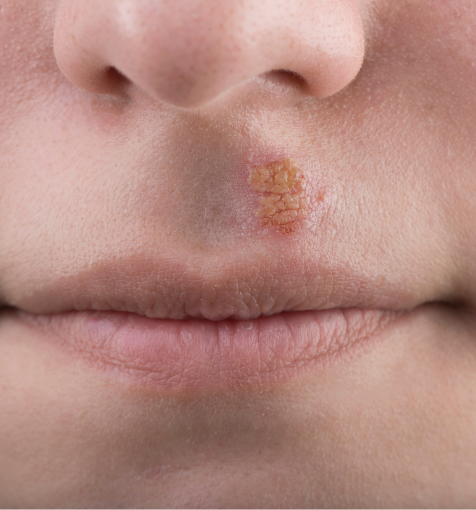Treat Painful Viral Blisters in New Jersey
Herpes simplex is one of the most common viral infections worldwide, affecting millions of people. Oral herpes (HSV-1) typically causes cold sores or fever blisters around the mouth, while genital herpes (HSV-2) most often affects the genital area. However, either strain can cause sores in both regions. At Skin & Laser Center of NJ, we provide compassionate, discreet, and effective care to help patients manage herpes simplex outbreaks and minimize discomfort.


Herpes simplex is caused by direct contact with the herpes simplex virus (HSV). Once a person is infected, the virus remains in the body for life, living in nerve cells in a dormant state until triggered. Common causes and triggers include:
HSV-1 (Oral Herpes): Usually spread through skin-to-skin contact, such as kissing or sharing utensils. Most people acquire HSV-1 during childhood.
HSV-2 (Genital Herpes): Primarily spread through sexual contact with an infected partner.
Reactivation Triggers: Stress, illness, surgery, fever, sun exposure, and hormonal changes such as menstruation can cause the virus to resurface.
The virus is highly contagious during active outbreaks when blisters are present, but it can also spread even when symptoms are not visible.
Symptoms of herpes simplex can vary depending on whether the infection is new or recurrent. Common signs include:
Clusters of painful, fluid-filled blisters that break and form scabs
Tingling, itching, or burning sensations before sores appear
Redness or swelling in the affected area
Flu-like symptoms, such as fever or body aches, during the first outbreak
Seek medical attention if outbreaks are frequent, severe, or cause significant pain, or if you notice sores near the eyes, as this can lead to serious complications.


While herpes simplex cannot be cured, symptoms and outbreaks can be effectively managed with professional care. Our providers may recommend:
Antiviral medications to shorten the duration of outbreaks and reduce their frequency
Topical treatments to ease pain and discomfort from blisters
Prevention strategies to help minimize the risk of transmission and flareups
Ongoing management plans for patients who experience frequent or severe recurrences
With the right treatment and lifestyle adjustments, many patients successfully control symptoms and reduce the impact herpes simplex has on daily life.
Learn More About Herpes Simplex
While the vast majority of patients affected by the herpes simplex virus are never aware of the condition, others experience a range of symptoms including:
The first time sores appear, they may show up between two and 20 days after being in contact with an infected person. With the oral form (HSV-1), most blisters appear on the lips or around the mouth, but may also form on the face, tongue, or anywhere on the skin. They can last for one to three weeks. With the genital form (HSV-2), sores typically occur on the penis, vagina, buttocks, or anus. Like oral herpes, these sores can appear anywhere on the skin, but can last one to six weeks. Genital herpes lesions may cause trouble urinating or a burning feeling while urinating.
Note that herpes simplex virus can spread to one or both eyes. If this happens, you may experience pain, light sensitivity, discharge, and a gritty feeling in the eye. Without prompt treatment, scarring of the eye may result, causing cloudy vision and even loss of vision.
Some people who get the herpes simplex virus never see or feel anything.
Before identifying the best treatment option for you, a dermatologist will examine your sores in order to provide a formal diagnosis. The dermatologist may swab the sore and send the sample to a laboratory for confirmation of this diagnosis. These options are only available during a herpes simplex outbreak, but a diagnosis can also be achieved with other medical tests, including a blood test.
Following your herpes simplex diagnosis at Skin & Laser Center of NJ, the following treatment options are available:
Skin & Laser Center of NJ can also diagnose and manage other viral skin conditions, such as shingles, as well as rashes related to a range of triggers, such as poison ivy.
Convenient walk in hours available below. No appointment needed! Accepting private insurance and medicare. No medicaid plans.
Learn more about medical treatments at New Jersey’s Skin & Laser Center of NJ. Call 201-500-7525 or contact us online to schedule a consultation.